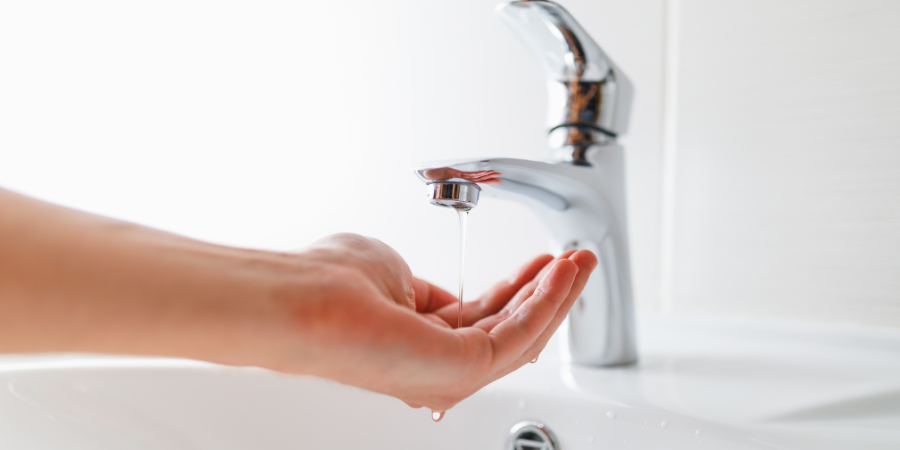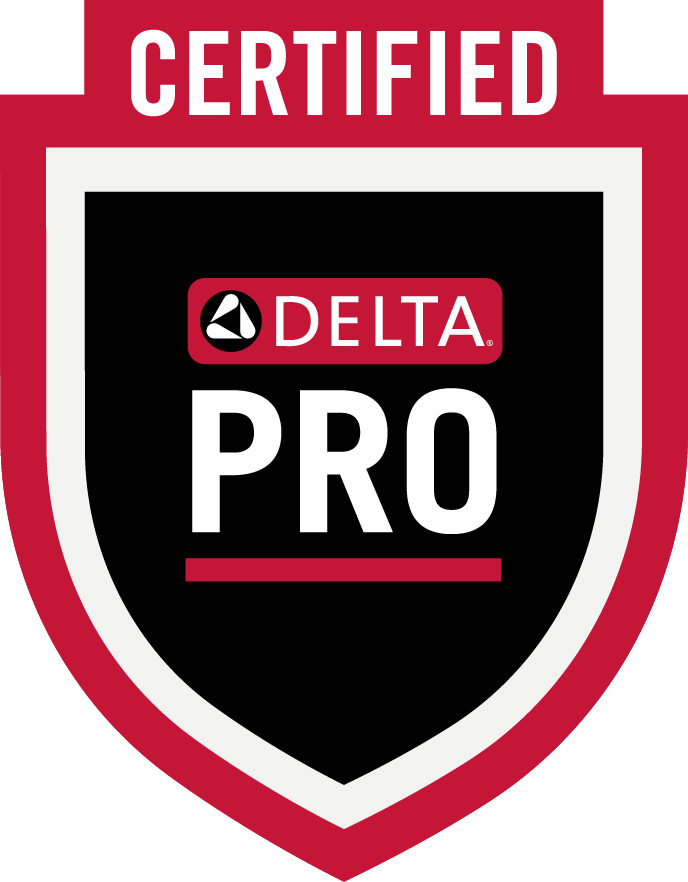Have you ever had the experience of running the bath water but needing to wait a long time for it to fill? The time delay is due to water exiting the tub faucet at a lower-than-normal pressure, and while this condition does not pose any danger, the causes of pressure issues could be linked to unsafe conditions.
In this article, we will learn what water pressure is and why having adequate pressure is important. We will reveal the causes of low-pressure problems and provide actionable steps homeowners can take to remedy the situation if their home is plagued by poor pressure. Finally, we will suggest a way to prevent low water pressure in the future.
What Is Water Pressure?
Water pressure measures the force of water flowing through plumbing pipes. It is measured in pressure per square inch (PSI), where 1 PSI is one pound of force applied per one square inch. Normal water pressure in a residential setting falls between 45 and 80 PSI. Anything higher than 80 PSI is considered too high, and below 40 is low.
Water is distributed to your home via gravity. Water towers that sit at a higher elevation than your home release water that falls through the distribution line. As it does, it picks up speed, causing the pressure to increase. Some areas require pumps to move the distributed water when proper differences in elevations cannot be reached.
Why Adequate Water Pressure Is Important?
As far as comfort is concerned, adequate water pressure allows for a refreshing shower or the ability to complete common household tasks in a timely manner. However, there are more practical reasons why adequate pressure needs to be maintained.
Preserves Plumbing Systems
While high water is more likely to damage plumbing systems by loosening pipe joints or excessive wear and tear on plumbing fixtures and appliances, low water pressure can be just as problematic.
Water Hammer
Slow-moving water can create a condition known as a water hammer, causing plumbing pipes to make loud banging sounds while in use. So, not only are you annoyed by the excessive amount of time it takes to fill the bathtub, but you are doubly annoyed by the accompanying banging sounds. Adequate pressure will reduce the water hammer.
Appliances Stop Working
Modern appliances are equipped with advanced technologies that focus on water conservation and energy reduction. However, if the water pressure becomes too low, these appliances will malfunction and lose their energy efficiency. Adequate water pressure must be available to glean the benefits of advanced technology.
Multiple Fixture Usage Possible
Taking a shower while simultaneously running the dishwasher should be considered routine. However, when water pressure is low, using multiple fixtures or appliances at the same time becomes impossible as there is not enough water available to satisfy all demands.
Causes Of Low Water Pressure
Although low pressure can frustrate homeowners, it has a more significant impact on the health of your plumbing system and the safety of your home. Read on to learn some of the causes of low water pressure.
Municipal Supply
Not every cause of low pressure originates within the home. A quick conversation with the neighbors will determine if the overall water distribution is weak and causing every home in the area to experience low pressure. Low water pressure can be annoying and test the patience of any homeowner, but some causes of low pressure are serious threats to plumbing systems that far outweigh any minor inconveniences.
Clogged Pipes
Metal pipes and hard water are a bad combination. As the hard water minerals come in contact with the pipe interior, corrosive materials such as sediment and rust are created. As they accumulate, they narrow the pipe interior, leading to an increase in pipe blockages and a decrease in water pressure. Clogs create added pressure on pipe walls and joints oftentimes leading to leaks.
Leaks
A break in a water line allows water to escape into the dark recesses behind walls and ceilings. Not only can this lead to mold and mildew growth and a weakened infrastructure from rotting studs and floor joists, but it will also greatly reduce the force of the water that eventually reaches the taps. Leaking pipes are a potential danger hiding behind a disappointing and lackluster showering experience.
Faulty Pressure Regulators
While not all homes are equipped with pressure regulators, the ones that are could be experiencing low pressure because the regulator is failing to do its job. A pressure regulator is primarily designed to reduce water with too high of a pressure, but a malfunctioning one can also contribute to water with poor pressure measurement. Pressure regulators aim to maintain pressures between 45 and 60 PSI for the inhabitants’ comfort and the home’s safety.
Small Branch Lines
Smaller branch lines that distribute water to plumbing fixtures and water-using appliances come off the main water supply. Over time, as fixtures are updated or appliances are replaced, the older branch lines may be too small in diameter to provide adequate water supply, causing a reduction in pressure.
Clogged Aerator
As sediment, dirt, and rust particles increase with accelerating corrosion, they tend to clog faucet aerators located at the tip of every faucet. If too much debris accumulates, it can slow down the pressure of the exiting water. While a minor issue, we wanted to mention any appliance components also affected by corrosion can be removed and cleaned to allow water to flow freely.
Remedies
Water lines clogged by corrosive particles deliver water that is significantly less pressurized than one would want. Luckily, there are easy-to-implement solutions to address the problem of low water pressure.
Clogs
Installing a water softener will remove or isolate hard water minerals so they do not deteriorate metal piping. If the piping is too far gone, a professional plumber can be engaged to repipe sections or all of your home’s plumbing pipes. Removing outdated and corrosion-filled metal pipes and replacing them with newer plastic pipes that are considered corrosion-resistant will solve this problem.
Leaks
Any detected leaks should be promptly addressed and repaired to reduce the threat of damage to your home. A quickly repaired leak will improve water pressure and maintain a healthy home.
For difficult-to-find leaks, learn the warning signs, such as a spike in the water bill, hearing running water when none is in use, or staining on walls and ceilings. Be on the lookout for any indicator that your plumbing may be leaking, and never ignore even the smallest of leaks since they often develop into plumbing emergencies.
Pressure Regulator
If you suspect your pressure regulator is malfunctioning and adding to your low water pressure, consult a professional to test, repair, or replace this important piece of plumbing equipment.
Branch Lines
We always recommend updating the associated plumbing lines when replacing plumbing fixtures. It makes little sense to upgrade a fixture without upgrading the plumbing pipes to state-of-the-art status, too.
Corrosion-Clogged Outlets
Whether it be a clogged showerhead or a sink faucet that trickles water, cleaning these components with an overnight soak in white vinegar will likely remove the limescale accumulations associated with corrosion. If too much damage has occurred, consult a professional to replace these worm components.
Prevention
The single most productive way to counter low water pressure and the issues it creates is by partnering with a reliable and experienced plumber. They can regularly inspect the plumbing system and look for early signs of corrosion damage, leaks, and plumbing that can benefit from replacement, as well as test the system to identify issues early that can lead to low pressure.
An ounce of prevention is worth a pound of care!
Looking To Eliminate Low Water Pressure?
We are professional plumbers with the knowledge and expertise to diagnose even the most complicated conditions that lead to low water pressure. Give us a call so we can address your pressure issues and ensure your safety and comfort. You are one phone call away from enjoying consistent water pressure every single day!






